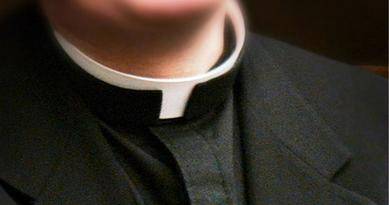In an article entitled “Dear Editor” in a prominent Catholic magazine, a 40-year-old diocesan priest, Patrick Sanford, writes on what he considers the five major problems among the priests he knows. Sanford has just had a long talk with his editor friend, prompted by the departure from the priesthood of a much admired theologian. Whenever something like that happens, the rest of us look at ourselves and wonder if we — or someone we thought we knew well — might be next. A distinguished monsignor, who had written an analysis for the magazine of the departure, sums it up as not an issue of celibacy, ecclesiastical discipline, ecumenism, academic freedom, or social justice, but “a deeply emotional reaction to an antiquated authoritarianism.”
Unless he reads the signs wrongly, Sanford contends, there are symptoms of a spreading malaise among “contented” diocesan, rather than religious, clergy.
1. These priests feel caught in the squeeze play at Vatican II: The positions of both the bishops and laity were elevated, but the basic parish priest received little recognition. Now careers in social work or the Peace Corps seem more highly regarded than the priesthood. What effect will this have on the priest’s prestige and authority?
2. These priests are undergoing a crisis of identity. They are beginning to wonder what, besides their sacramental powers, especially the powers to consecrate and forgive sins, really marks their vocations as unique, useful and constructive. Lay people have assumed so many other responsibilities — lectors, religious instruction, study groups, parish councils. Parishioners turn not to priests but to marriage counselors and psychiatrists. What do priests do that requires a special uniform and way of life? On Mass and confession: “Yet, even here the mystique is gone, the spell has been broken, and the priest is led to wonder and to worry as he hears the distant thunder of theological arguments about transubstantiation and the necessity of auricular confession.” He fears the same identity crisis that led religious women to imitate laywomen in dress, work and attitudes.
3. The crisis has four causes: priests have not kept up on new theology; priests, unlike doctors and lawyers, rarely see their goals realized; long hours of counseling and advice are often disregarded; priests embarrass one another by their public behavior.
4. Priests are stuck between the new breed of theologians on one side and the consensus fidelium on the other. Some theologians seem to spend their time simply validating what the mass of Christian people are already thinking and doing. It seems that theologians have snatched authority from the bishops. And the growing belief in subjectivity undermines the parish priest’s preaching authority. The parish priest also resents that so many of the new ideas come from priest-professors in religious orders who lack experience with ordinary people. The scriptural exegetes make him wonder about more biblical events that maybe never happened. “He has seen the demise of Adam and Eve, the Flood, the infancy narratives, the Sermon on the Mount and heaven and hell; just recently he has learned that Jesus probably did not know prior to the resurrection that He was divine. What will go next?”
5. These priests worry about the uniformity in the church’s doctrine and law. The priests are unsettled by the spectacle of Catholics making peace with uncertainty and tentativeness. A shifting universe threatens to undermine one’s position as priest. The author concludes that these are all good men, that he himself does not have all these problems, but he wonders what to tell them. Just “hang on as best they can?” Even St. Augustine was prey to doubt.
If you wish to read the full text of “Dear Editor:” see America, June 24, 1967. I fell upon it while researching the Vietnam War.
I can’thelp wonderingto what degree the same problems — especially about the theological training of priests and the attachment between their self-image and the authority priests have through the sacraments — lurks today. Garry Wills has just published a book on this topic. This “letter” was written the year I was ordained, and I too had just been told in conversation that Jesus did not know he was God until the resurrection. I liked the idea, felt liberated by it, because it opened up another opportunity to understand Jesus in his full humanity, with implications for our understanding of heaven and the afterlife as well. I remain disappointed that the letter’s author, Patrick Sanford, is not Patrick Sanford but a pen name for someone who did not want to be personally identified with what he writes. What is he afraid of? But that’s another story.








